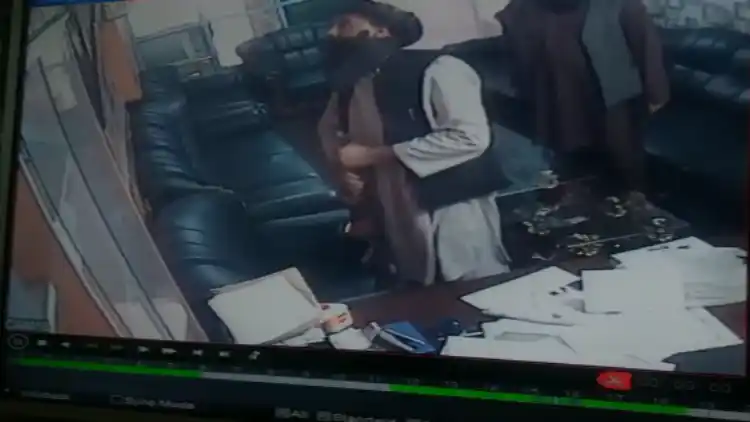New Delhi
Sikhs in Kabul say more than a dozen armed men attacked and briefly occupied a Gurudwara in the Kart-e Parwan district of the Afghan capital on October 5. They ransacked the place after tying up the guards and destroying security cameras.
According to Radio Azadi of Afghanistan, the guards suffered minor injuries in the attack.
The Granthi of Gurudwara Gurnam Singh, told Azadi Radio that he was not sure about the identities of the intruders, but the incident has heightened concerns about the Sikh community's safety.
"At around 3:30 p.m. on [October 5], 15 to 20 militants entered the shrine and tied up the guards. They also broke security cameras," Gurnam said. "They were in the gurdwara for about half an hour. Security officials did not tell us if they were thieves or the Taliban."
A video that appeared on social media showed armed men inside the Sikh temple. From the video footage posted on social media, one could make out that the intruders were searching for something – possibly a snooping device.
Though it’s being presumed the intruders were the ruling Taliban, Bilal Karimi, from the Taliban-led authorities' media team, told the said portal that the attack was being investigated. “He did not elaborate,” the report said.
Many religious minorities have suffered discrimination at the hands of Sunni Taliban militants, including during their reign in Kabul and other wide swaths of Afghanistan from 1996-2001.
The community of Afghan Hindus and Sikhs was once estimated to be more than 80,000 strong, but many left after the collapse of the communist regime in 1992.
Many have lost their businesses and properties during the various cycles of war during the past three decades.
More Afghan Hindus and Sikhs left for India after a deadly attack by gunmen on a Gurudwara in Kabul in March 2020.

